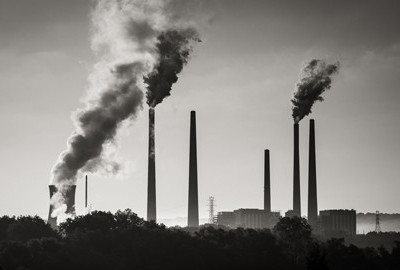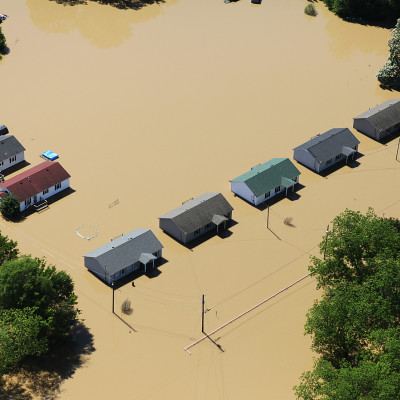July 31, 2022
July 2022 at Policy Integrity
- Climate Policy After West Virginia v. EPA
- SEC’s Climate-Risk Disclosure Rule is Not Novel. And That’s a Good Thing.
- Strengthening EPA’s Asbestos Risk Management
- Improving Climate Damage Estimates
- Staff Spotlight: Don Goodson and Christoph Graf
- More From This Month
-

Climate Policy After West Virginia v. EPA
Policy Integrity has helped provide clarity for reporters and the public on the impacts of the Supreme Court’s ruling in West Virginia v. EPA. Although the decision is a significant setback for environmental protection and public health safeguards, the EPA still has authority to address greenhouse gas emissions from the power sector, Richard Revesz told CNN, AP News, and the Financial Times. However, the case increased focus on the “major questions doctrine,” which invites courts to narrowly construe agency authority, Max Sarinsky told Reuters and explained in the Bulletin of Atomic Scientists. The doctrine didn't exist until fairly recently, but this Supreme Court and Republican attorneys general have made it a regular part of their anti-regulatory arsenal, Revesz told the Washington Post and wrote for Bloomberg Law. For this reason, Dena Adler called the decision “a canary in the coalmine” for future regulations and proposed a path beyond this “major” problem in an op-ed for The Hill: when issuing new rules, agencies should use their authority thoughtfully and identify precedents for their actions. For instance, while West Virginia prohibits EPA from basing power-sector regulations on generation-shifting, a new EPA rule to limit powerplant emissions could require that coal plants sometimes burn gas instead or that plants be retrofitted with carbon capture and storage, wrote Jack Lienke for Canary Media and Revesz for Science.
-

SEC’s Climate-Risk Disclosure Rule is Not Novel. And That’s a Good Thing.
After West Virginia v. EPA, commentators began asking how the ruling might affect other regulations, particularly the Securities and Exchange Commission’s (SEC) proposed climate-risk disclosure rule. Opponents of the regulation have tried to frame the Commission’s authority to promulgate climate-related disclosures as a “major question” that would require explicit authorization from Congress. But this ill-defined interpretive tool—which is supposed to apply only in exceptional cases—is not applicable here, explains Bridget Pals in an opinion piece, because the proposed rule falls squarely within the SEC’s historical understanding and use of its authority. Not only has the SEC required environmental disclosures for half a century, but other features of the proposed rule, such as its treatment of materiality, and its treatment of future risks, are also well-precedented.
-

Strengthening EPA’s Asbestos Risk Management
In its first risk management rulemaking since Congress amended the Toxic Substances Control Act in 2016, the Environmental Protection Agency (EPA) has proposed a ban on multiple uses of asbestos, the largest single cause of occupational cancer in the United States. Together with Professor Rachel Rothschild at the University of Michigan Law School, Policy Integrity submitted comments on the agency’s economic analysis of the proposed rule, identifying numerous ways EPA underestimated the health benefits from reduced cancer cases and lung illnesses and providing recommendations to bolster the analysis. In a related comment letter, we commended the agency for using the social cost of greenhouse gases to calculate the climate benefits of the rule.
-

Improving Climate Damage Estimates
Peter Howard and Thomas Sterner released a working paper through Resources for the Future explaining disparities between two leading climate damage functions, including one derived from the work of Nobel Prize winner William Nordhaus. Their paper attributes this disparity to differences in both methodological decisions (addressing methodological controls and heteroskedasticity) and subjective decisions (about data search, selection, and weighting). Building on these previous papers, Howard and Sterner’s paper estimates that climate damages will be approximately 7 to 16 percent of GDP for a 3°C increase in global temperatures, though the upper end of this distribution is sensitive to modeling decisions.
-

Staff Spotlight: Don Goodson and Christoph Graf
Don Goodson recently joined Policy Integrity as a Senior Attorney focusing on appellate advocacy. He previously clerked for Associate Justices Anthony M. Kennedy and John Paul Stevens (Ret.) of the U.S. Supreme Court, Chief Judge Robert A. Katzmann of the U.S. Court of Appeals for the Second Circuit, and Judge Alison J. Nathan of the U.S. District Court for the Southern District of New York. He also worked at multinational law firms, where he focused on appellate advocacy and dispositive motion practice. He received his J.D. magna cum laude from NYU School of Law.
Christoph Graf joins Policy Integrity’s energy team as a Senior Economist. His research examines energy and climate policy to support the energy transition to a sustainable, low-carbon future. Previously, Dr. Graf held several research positions, including at Stanford University, the University of California at Berkeley, and the European University Institute. He also taught at several universities in Vienna and received a diploma in Economics as well as a Ph.D. in Management from the University of Vienna.
-
More From This Month
- We filed comments on the New York State Climate Action Council’s Draft Scoping Plan. We endorsed several of the Council’s proposed measures relating to clean energy transition in the electric and gas systems. We also recommended further measures that would foster coordination of electricity sector stakeholders' decisions and create greater clarity and certainty about the nature and pace of gas system transition.
- A Yale Journal of Regulation article by Justin Gundlach and Michael Livermore on the complementary uses of the social cost of greenhouse gases and marginal abatement costs metrics was featured in the Regulatory Review’s editors' selection, along with an op-ed by Peter Howard and Max Sarinsky explaining why limiting domestic fossil fuel extraction reduces global climate pollution despite substitution effects.
